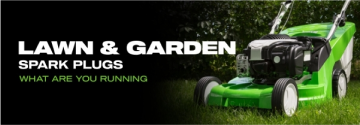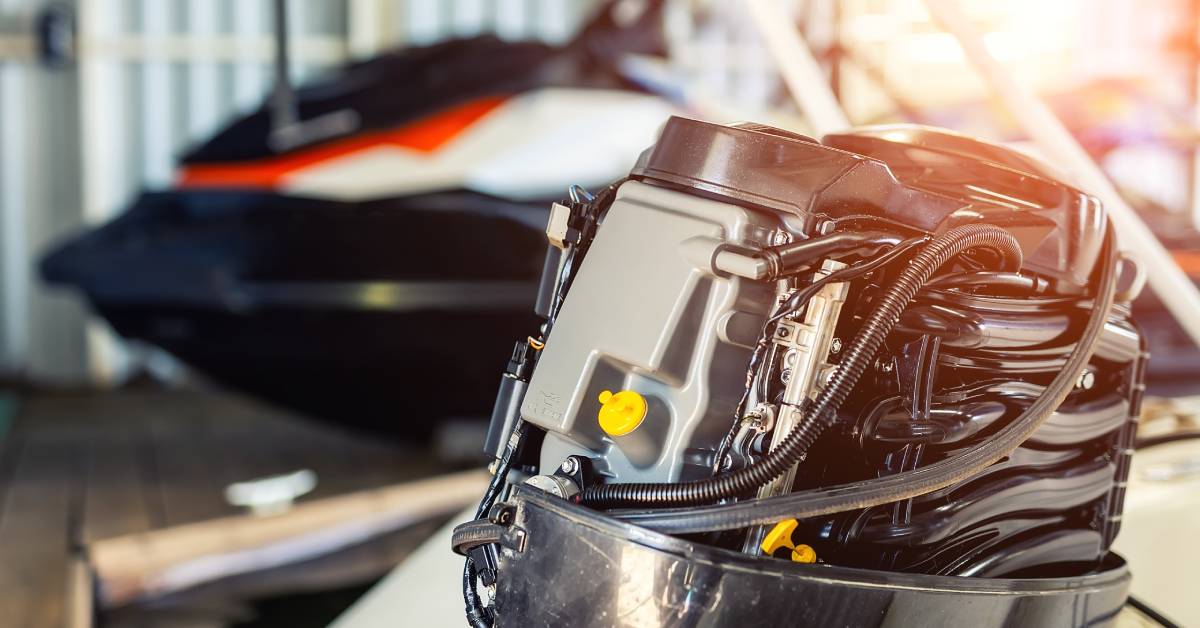
It's the last month of cold weather for most of the country, which means it is time to service your lawn and garden equipment. If you typically just pull your lawn edger, string trimmer or leaf blower out of storage and use everything as is, you might want to read the report below. According to the U.S. Environmental Protection Agency, you could be a major air polluter out of ignorance. Did you know that one hour of running your gasoline-powered lawn mower emits more pollution than eleven new cars over the same amount of time? How about one gas mower spews 88 lbs. of greenhouse gas and 34 lbs. of other hazardous pollutants into the air each year?
EPA Emissions Study for Gas-Powered Lawn & Garden Equipment
In a recent study conducted by Jamie L. Banks, PhD, MS for the US Environmental Protection Agency, Region 1, state level emissions data from the five most populated states, which included California, Florida, Illinois, New York, and Texas, were extracted and analyzed for gas-powered lawn and garden equipment (GLME). The goal of the EPA study was to estimate the contribution of GLME to each state's emissions. Special attention was paid to 2-stroke engines like those used in your lawn edger, string trimmer and leaf blower.
EPA developed a non-road air emissions model in the 1990s to provide estimates of emissions from most types of non-road equipment, including lawn and garden equipment. What the study quickly discovered was gas-powered lawn and garden equipment ranging from string trimmers to lawn edgers and stump grinders to leaf blowers are a source of high levels of localized emissions that includes hazardous air pollutants, and carbon dioxide.
For this study, researchers estimated that 136 million pieces of gas-powered lawn and garden equipment would be used in 2018. Two-thirds, of which, are lawn mowers representing 40% of the GLGE equipment, followed by string trimmers and lawn edgers at 18 %. When considered together, the previous year's GLGE emissions from the five (5) most populous states constituted approximately one-quarter of national emissions. Florida’s GLGE emissions were 1.5 to 2 times higher when compared with the next highest level of emissions in every pollutant category
What are Volatile Organic Compounds (VOCs)?
The use of fossil fuels produces volatile organic compounds either directly as products (i.e., gasoline) or indirectly as byproducts (i.e., engine exhaust gas). VOCs contribute to "smog" by providing the pollutants that produce the dirty color and foul smell. A VOC that is a known human carcinogen is benzene. Benzene is found in stored fuels as well as exhaust from vehicles and gas-powered lawn and garden equipment. Benzene evaporates into the air quickly. Since the vapor of benzene is heavier than air, the compound sinks into low-lying areas.
Small gasoline-powered lawn and garden engines account for more than 40% of VOC emissions. Extensive evidence exists on the adverse health effects of exhaust emissions and unburned fuel, including cardiovascular disease, stroke, respiratory disease, cancer, neurological conditions, premature death, and effects on prenatal development. Anyone outside, including children, can be exposed to high levels of emissions from landscape maintenance equipment such as lawn edgers, string trimmers, and mowers that are used routinely around residential neighborhoods public spaces. Less serious health effects of VOCs can include eye, nose, and throat irritation, headaches, loss of coordination, and nausea.
5 Maintenance Tips for Lawn and Garden Equipment
Each weekend, about 54 million Americans work on their lawns, using 800 million gallons of gas per year. This produces tons of air pollutants from exhaust emissions and unburned fuel. GLGE engines emit high levels of carbon monoxide, volatile organic compounds (VOCs) and nitrogen oxides. This accounts for up to 5% of the nation's air pollution and a good deal more in metropolitan areas. By taking any of the following actions, you are helping to clean up our atmosphere.
- Replace Lawn Edger and String Trimmer Spark Plugs - monthly checks of the spark plugs, and air filters can help ensure optimal burn of the gasoline before the exhaust cycle. Unburned fuel is a waste of money and emits VOCs into the air.
- Flush Tank on Gas-Powered Lawn & Garden Equipment - Each season flush the tank on your lawn edger or string trimmer to make sure there's no moisture to interfere with the burning of the fuel mixture. Ethanol gasoline blends attract water, so clean your gas can as well.
- Don't Waste Gasoline - Over 17 million gallons of gas are spilled each year refueling lawn and garden equipment, which is more than was spilled by the Exxon Valdez.
- Clean and Adjust Carburetor - When the engine on your lawn edger, string trimmer or leaf blower doesn't sound like it is running smoothly or producing sufficient power. Stop, clean and adjust to avoid raw fuel escaping into the air.
- Keep Your GLGE Clean - Dirt can find its way into the gas line, which can clog the carburetor resulting in more unburned gases emitted into the environment. Plus, dirt can create friction in moving parts like ball bearings, which reduces performance.
Remember, from the easy to the ambitious, there are numerous actions you can take to reduce unwanted emissions and help fight global warming. To learn more, visit our Environmental Benefits page and discover for yourself why E3 Spark Plugs stand for Ecology, Energy and Efficiency.







